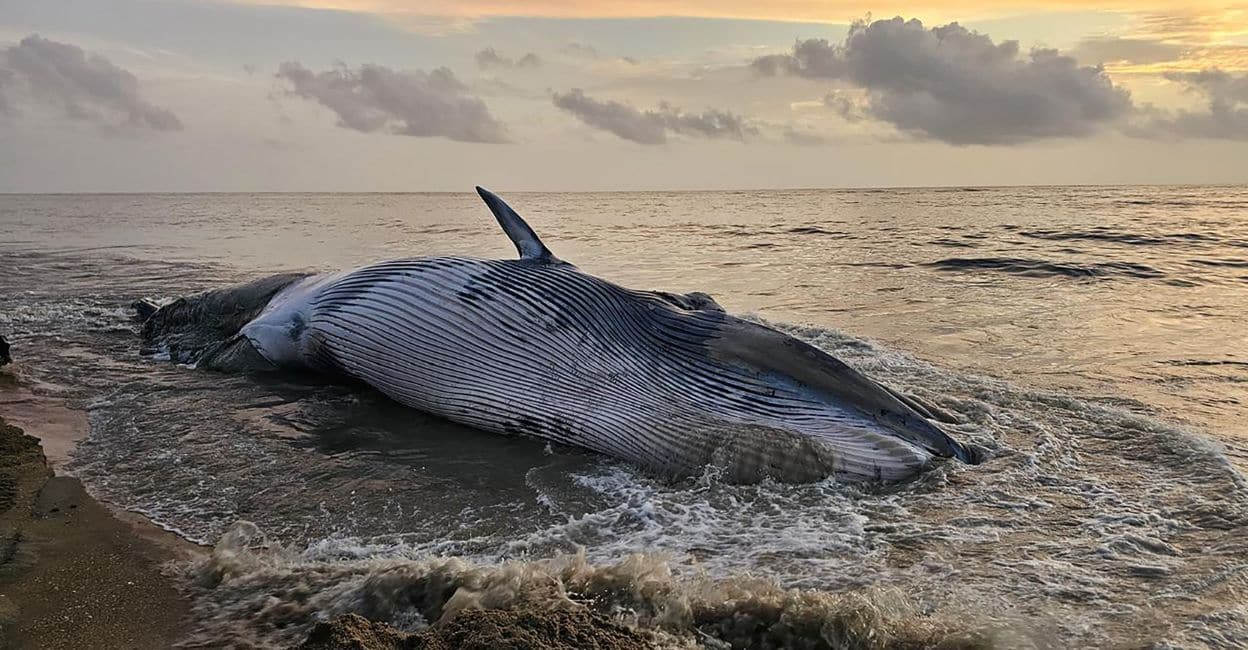Thiruvananthapuram: Whale strandings along India’s southwest coast have increased tenfold over the past decade, according to a study by the ICAR–Central Marine Fisheries Research Institute (CMFRI). Kerala, Karnataka and Goa emerged as key hotspots, where high vessel traffic, intensive fishing, shallow coastal shelves, and environmental factors contribute to strandings.
Analysing data from 2004 to 2023, scientists found annual strandings rose from 0.3 per cent in 2003–2013 to 3 per cent in 2014–2023. The surge is linked to environmental shifts, human activity, and improved reporting through social media and citizen science.
The study identified Bryde’s whale as the most commonly stranded species, with occasional blue whale cases. Genetic analysis confirmed the presence of two distinct Bryde’s whale forms in Indian waters. In 2023 alone, nine strandings, the highest in recent years, were recorded, mainly between August and November.
Environmental analysis revealed a positive correlation between chlorophyll-a concentration during the southwest monsoon and strandings, suggesting whales are drawn closer to coastlines when nutrient upwelling boosts plankton and fish availability. Rising sea surface temperatures and ocean warming were found to disrupt ecosystems, increasing the risk of strandings, while strong converging currents can push weak or dead whales ashore.
Scientists recommend predictive models using satellite data such as chlorophyll levels, wind patterns, and SST to anticipate strandings and allow pre-emptive conservation action. The study also highlights the threats posed by noise pollution, ship strikes, and habitat degradation to endangered whale populations.
Lead author Dr R Ratheesh Kumar, principal investigator of the national project Marine Mammal Stock Assessments in India, stressed the need for robust marine mammal conservation infrastructure, especially along the southwest coast. The paper appears in Regional Studies in Marine Science.
Proposals include real-time alert systems, marine megafauna conservation networks, training programmes for fishers and officials, and enhanced citizen science platforms for accurate data collection.

